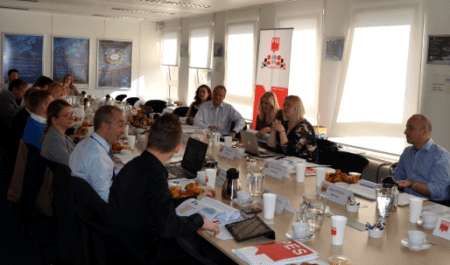Raymond Johansen from the Norwegian Labour Party, chair of the PES study Group on Abstention says “There are many reasons why people do not vote, some of them due to exasperation with politicians or not feeling represented. We have to change how politics is made, political parties have to open up, and politicians must regain their trust among the citizens. But when 37 percent list practical and technical reasons of why they abstained from the election, so we also have to make it easier for the voters to actually use their voting rights.”
The latter is what this PES working group is determined to address. “Some of our European Electoral systems where designed in the 17th century. It is high time to give a serious thought to changing and modifying the electoral systems and adapting it to our modern life. No one should be prevented from voting because they are too busy or too far from a polling station.”, Johansen continues.
Extending voting could include early voting – which has been successful in Nordic countries, e-voting – at the ballot station and online and making it easier for people to get to the polling station to vote. The Study Group on abstention met on 24th April 2015 to exchange experiences of election innovations and discuss innovative methods to improve the situation. The study group heard from Estonia – which has one of the most advanced e-voting systems in the world – where voting is possible online, including on a mobile phone. It also heard from countries including the Netherlands and Finland who had attempted to introduce e-voting but where technical barriers forced them to go back to paper and pen. The European Parliament performed a 2014 Post-Election Survey on abstention. The results were presented at the PES working group and provided an informative insight into the reasons for voting, and for not voting.
The PES Study Group on abstention will continue to meet in future and will explore more innovative ways to increase voter turnout in domestic and EU election.



